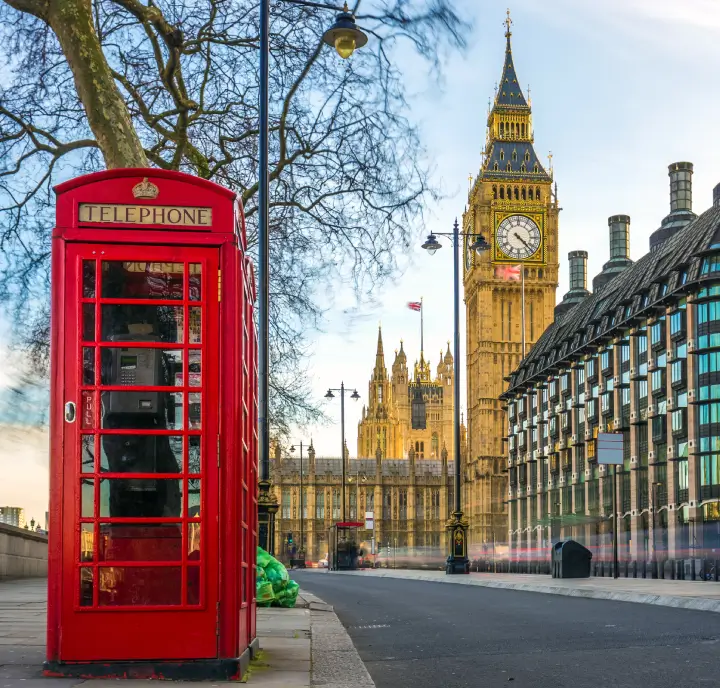The divorce procedure is pretty much the same as for a dissolution of a civil partnership.
Monday - Friday: 9:30am - 5:30pm
Monday - Friday: 9:30am - 5:30pm
Experienced civil partnership dissolution solicitors who regularly advise clients on issues surrounding LGBT and civil partnerships.
Civil partnership dissolution is the term used to describe the termination of a civil partnership in the UK. Josiah-Lake Gardiner regularly advise clients on issues pertaining to civil partnerships and LGBT. If you’re looking for expert legal advice in relation to civil partnership dissolution, speak to our expert solicitors today.
To book an initial consultation with our civil partnership dissolution solicitors, simply call 020 3709 8975 or complete our online enquiry form.
Legally, a dissolution order brings your civil partnership to an end and leaves you free to re-marry or enter into a new civil partnership. As the law currently stands, only same sex couples can register as civil partners of each other, but the legal status of civil partners is akin to that of married partners (whether opposite sex or as of March 2014, pursuant to the Marriage (Same Sex Couples) Act 2013, same sex partners).
In R (on the application of Steinfeld and Keidan) (Appellants) v Secretary of State for the International Development (in substitution for the Home Secretary and the Education Secretary (Respondent) [2018] UKSC 32, in what was an expected defeat for the government, the Supreme Court, on 27 June 2018, ruled that civil partnerships should be open to heterosexual couples.
It was never clear to pretty much anyone why the government chose to keep civil partnerships in place after March 2014. By doing so, giving two options for gay couples to formalise their relationships as opposed to just one for heterosexual couples, the government was always setting itself up for litigation on the basis of discrimination. Since the ruling, the UK government has pledged to allow opposite-sex couples in England and Wales to enter into civil partnerships, although no timeline for the passage of the required legislation has been set and with Brexit pretty much sucking all the air out of the legislative chamber there seems to be no urgency with regard to enacting such legislation.
A bitter separation can lead to feelings of anger, resentment and shame. It can cloud how you approach new relationships. Also, it can impact how you view or value your continuing relationship with your civil partner, particularly when you have children together and need to continue to function as parents and ongoing role models for your children.
In England and Wales, there is only one ground for the dissolution of a civil partnership and that is – that the civil partnership has broken down irretrievably. The fact of such irretrievable breakdown must be evidenced by one (or more) of four supporting facts set out at s 44(5)(a)-(d) of the Civil Partnership Act 2004, the first two of which are the ‘fault facts’:
Before filing a petition for the dissolution of marriage the spouses must have been married for at least 1 year.
An application will be made to the Family Court for the dissolution. The court will then send out a copy of the application (petition) to the other partner, who is required to complete, sign and return to the court a form acknowledging receipt of the application and indicating on it whether s/he intends to contest/defend the dissolution application.
If the respondent to an application for a dissolution order challenges the assertion by the applicant that the civil partnership has broken down irretrievably as evidenced by the supporting fact or facts pleaded under s 44(5), the proceedings must move forward on a contested basis and the court must reach a conclusion based on the whole of the evidence. Defended cases are very rare, however.
As with proceedings for divorce, where the proceedings for dissolution are undefended it is unlikely that the court would conduct any formal enquiry into the breakdown of the civil partnership beyond what is necessary to satisfy itself on the fact or facts pleaded under s 44(5) that the civil partnership has indeed broken down irretrievably. After a copy of the acknowledgement is received by the applicant, s/he can apply for the conditional (dissolution) order. 6 clear weeks from the date of the conditional order, the final dissolution order can be applied for.
A same sex marriage is brought to an end in the same way as for an opposite sex marriage. In England and Wales there is only one ground for divorce and that is – that the marriage has broken down irretrievably. The fact of such irretrievable breakdown must be evidenced by one (or more) of four supporting facts, the first two of which are the ‘fault facts’ (it being the case though that adultery is not applicable in the case of same sex marriages, the definition of adultery under English Law involving penetrative sex between a man and a woman):
The divorce procedure is pretty much the same as for a dissolution of a civil partnership.
Generally, it will take between 5 and 8 months from the date of the filing of the application/petition to the date of the final dissolution order. However, the length of time will always depend upon your particular circumstances, as well as the length of any backlog in the
Family Court! Usually, however, any financial settlement will be resolved, whether by consent or by way of an order of the court, before the final dissolution order is sought. The way in which a family’s assets are divided on dissolution is complex and a whole range of factors are taken into account as follows:
For more information, you should make an appointment with one of our expert solicitors to discuss your particular circumstances.
Unfortunately, there is no straightforward answer to this question. The legal costs depend on the length of time it takes to reach an agreement both in respect of the dissolution and the division of the family finances.However, at Josiah-Lake Gardiner we pride ourselves on offering very competitive rates and in respect of the civil partnership dissolution order itself (and therefore excluding the arrangements for any children and the financial issues), the costs could be as little as £1,000 plus vat plus the court fee of £550.
We do understand that it is important that you know from the outset what your legal fees are likely to amount to. For this reason, we provide our clients with a bespoke costs plan and time estimate at the outset of a case (for which there is no charge) with regular updates as needed.
As stated above, there is really no straightforward answer to this question, as a lot will depend on the length of time it takes to reach agreement both in respect of the dissolution and the division of the family finances.
However, excluding the arrangements for any children and the financial issues, the costs could be as little as £1,000 plus vat plus the court fee of £550.
How soon can you marry after a Civil Partnership Dissolution or Same Sex Marriage?
You can remarry/enter into a new civil partnership pretty much as soon as the ink dries on the decree absolute or final dissolution order, but if financial matters have not yet been resolved the fact of the new marriage or civil partnership will have a bearing on the eventual financial settlement. However, it should be noted that if an application has not yet been made for any financial orders by someone who has remarried or entered into a new civil partnership against their former spouse or civil partner they would on their remarriage/civil partnership be precluded from doing so.
All of the family lawyers at Josiah-Lake Gardiner have extensive experience of handling civil partnership dissolution matters. We can expertly guide you through the dissolution process, knowing that no two cases are the same, just as no two civil partnership relationships are the same.
Our experienced team of solicitors will always endeavour to minimise the potential emotional distress of dissolution on all members of the family, with particular emphasis on assisting clients to minimise as much as it is possible to do the emotional impact on any children of the family.
We will fully explain the procedure at the outset of the case and will keep you updated at every stage. We have solicitors specialising in the Collaborative Law process, which promotes an open and non-confrontational approach to relationship breakdown.
More information can be found on our collaborative law page. It may be that you and your partner will, with our help, be able to secure an out of court agreement, but if you do have to go to court, you need to be sure that you have expert divorce/dissolution lawyers on your side. In this regard, we have been named one of the UK’s leading Family Law firms by the independent legal guide The Legal 500 for a number of years.








